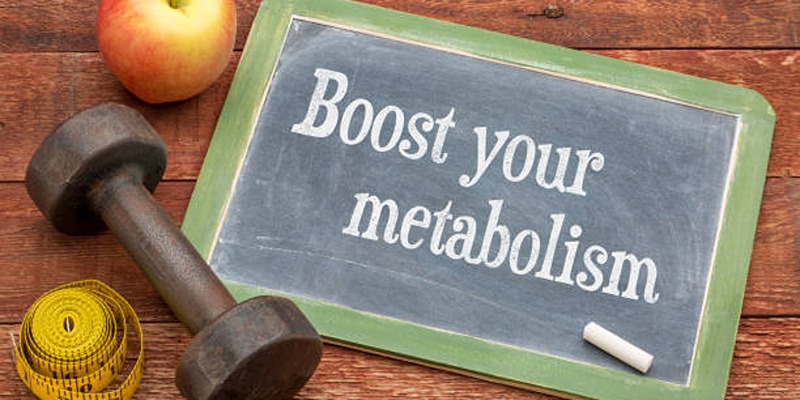The first two years of every child's life are crucial for brain development. This phase acts like a building block that defines how the brain will work for the rest of life. During these years, the nerves grow and connect, creating the systems determining how a child thinks and feels. These connections and changes later affect learning, memory, attention, processing speed, moods, impulses, and the ability to plan and multitask.
So, parents should ensure that the child eats nutrient-rich foods during the early years of his life, as nutrition plays a crucial role in a child's cognitive development. From omega-3-rich seafood to protein-packed nuts, these foods nourish young minds, improve their mood, sharpen their focus, and enhance their problem-solving skills. If you want to learn more about these essential brain foods your child needs, keep reading, as this is what we will discuss today!

The Crucial Nutrients For Baby Brain Development
Although all the nutrients are important for brain development, functioning, and growth, some are vital and play a bigger role. As per the American Academy of Pediatrics Committee on Nutrition, the recommended nutrients for healthy brain development in infants and toddlers are:
- Choline
- Folate
- Iodine
- Iron
- Long-chain polyunsaturated fatty acids (omega-3 fatty acids)
- Protein
- Zinc
- Vitamins (A, D, B6, B12)
Best Food For Healthy Brain Development In Children
There is no superfood or singular source of all the recommended essential nutrients for healthy brain development, but these nutrients are packed into different food groups. Therefore, you need to ensure that all these nutrition-packed foods are essential to your child's diet. Below, we have enlisted some of the best foods that ensure healthy brain development in children. You can pick any of them, but be sure to check for allergic reactions before giving them to your baby:
Eggs
Eggs are considered a universal food that is both nutritious and loved by young ones. They contain brain-boosting nutrients, including choline, vitamin B12, and proteins. Choline is a vital nutrient for normal brain development and improves cognitive functioning. Two eggs provide enough choline for children less than 8 years old.

Seafood
Seafood is loaded with essential nutrients for brain development. It is also a value-for-money food that serves the purpose of nutrient-dense food. Nutrients like protein, zinc, iron, choline, iodine, and omega-3 fats are present in seafood. Be sure to refrain from giving your toddlers food that contains mercury, which is present in tuna and swordfish. Mercury can harm the nervous system and negatively impact its development. Alternatively, you can opt for low-mercury options, including salmon, shrimp, tilapia, and crab. Your toddler or children under three can take one ounce serving two to three times a week.
Leafy Green Vegetables
Leafy green vegetables contain iron and folate. Although most children don't like them, parents often hide or mix them with pasta sauces and different smoothies. According to research, children with enough folate in their food tend to have better cognitive abilities than those without. Similarly, iron is essential for hippocampus development, the section of the brain in charge of learning and memory.
Lean Beef (or Meat Alternative)
Lean beef is another source of iron and zinc. Both of these nutrients make it to the list of brain foods. That’s because, in the development phase, children often face iron deficiency or experience anemia (low iron levels) that can contribute to poor learning abilities and attention deficit hyperactivity disorder (ADHD). If your children don't like or push meaty products away, black bean or soy burgers are the best alternatives that contain iron.
Yogurt
Unsweetened yogurt contains nutrients like protein, zinc, choline, and iodine. Most children happily eat yogurt, which is why it is hailed as a kid-friendly food that supports brain growth. Similarly, iodine is behind the production of thyroid hormones that are integral for brain development and other neurological processes. An iodine deficiency in children impacts their overall cognitive function and reasoning ability.
Nuts and Seeds
Nuts and seeds are packed with nutrients. They are available in a variety of products. You can eat them raw, blend them in smoothies or cakes, or make nut butter, which is an easy and effective way to consume them; children love it. These nuts and seeds are packed with protein and zinc. Both of these play a vital role. Protein contributes to healthy brain growth and long-term memory development. Zinc plays an important role, especially in toddlers, where growth is happening at a much higher pace, but zinc deficiency can affect cognitive development, memory, and the ability to learn. Nuts and seeds can be a choking hazard, so add water when giving peanut butter or puff snacks made only with peanuts.
Beans
Beans are another food that contains many nutrients essential for brain development. These nutrients include zinc, protein, iron, folate, and choline. If you are looking for omega-3 fatty acids, kidney, pinto, and soybeans are loaded with these nutrients. They are also best for children who love non-veg food and want a meat substitute packed with iron and protein.
How To Encourage Healthy Habits In Children?
Parents often struggle to incorporate these healthy food options into their children's diets. Not all children easily choose these healthy options when a variety of junk food and sugary snacks are available in the market. Here are some tips for incorporating these healthy food options into their diets for better brain development.
- Lead by Example and eat healthy food; children learn faster from their parents or environment.
- Involve them in meal preparation.
- Make healthy food fun, like adding colorful fruits and making shapes of slices.
- Setting up regular meal and snack times
- Limiting Sugary and processed food items.
Conclusion:
Studies have shown that the first 1000 days of a child's life are the most important in developing a healthy brain, making proper nutrition crucial. Therefore, parents can incorporate different foods into their children's diets. In this way, the child can get all the necessary nutrients that help in brain development, improve cognitive functions, amplify memory, and promote overall brain health. The foods mentioned above contain all the nutrients required for brain development. So, pick any of them and ensure your child gets all the nutrients for healthy brain development!












